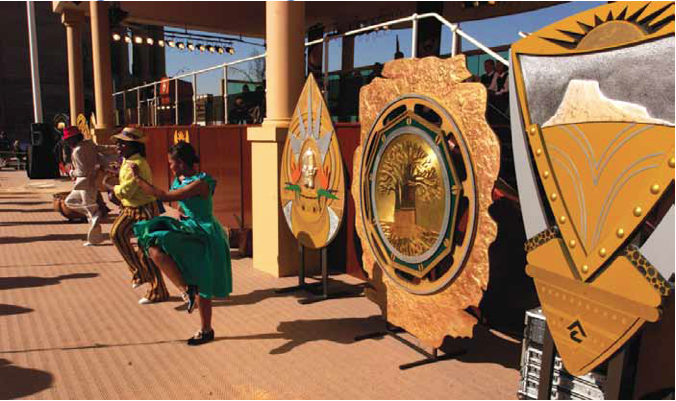National Orders 2012: A Vuk’uzenzele Special
National Orders 2012: A Vuk’uzenzele Special sadminCelebrating freedom, celebrating honour

Every year, on Freedom Day, South Africa pays homage to its heroes and heroines and eminent foreign nationals who have played their part in making South Africa what it is today.
With the birth of a new non-racial and non-sexist democracy in South Africa 18 years ago, there was a critical need to review the system of national orders and awards. The previous system consisted of one Decoration and four Orders, which did not embrace the spirit of the rebirth of South Africa.
In May 1998, the then newly-instituted President’s Advisory Council on National Orders was given the task to review the system of National Orders and awards.
A technical committee embarked on an extensive and inclusive research process that involved public consultations, interviews with stakeholders on a national scale, group discussions focusing on alternative systems, the commissioning of historical research and the gathering of jewellery and medal designers to design the new medals.
The then Department of Arts, Culture, Science and Technology, in cooperation with the Government Communication and Information System, investigated further symbols and symbolism that would capture the essence a new democracy.
A panel of academics and specialists in indigenous symbols was asked to identify key factors and elements that represented the collective and inclusive history and experience of Africa with South Africa as the main point of reference.
This resulted in the commissioning and ultimate design of the new National Orders.
Today, South Africa is a country that embraces freedom and no longer excludes or discriminates on the basis of sex, colour and creed. As the country moves forward, it is distinguished by a new culture of human rights and respect for the dignity of the human spirit.
In so doing, new symbols that reflect our nation and its rebirth have evolved. The National Orders were conceived in that same spirit of rebirth and are the highest symbols of pride and honour in our country.
How the nomination process works
The National Orders are the highest awards bestowed on ordinary South Africans or eminent foreigners who are doing or have done extraordinary things for our country. The awards tell a story of distinguished men and women who have enriched our lives through what they do or have done.
“We bestow national honours on men and women whose towering credentials rival our highest mountains. Yet, they stand before us with a wondrous modesty which defies their huge distinctions in various fields, which have enriched our lives immeasurably,” says Dr Cassius Lubisi, Director-General in The Presidency.
The nominations for National Orders can be made by members of the public, non-governmental organisations, civic-based organisations and faith-based o ganisations. Nominations must include a motivation with the following information:
• a summary of the nominee’s achievements
• a list of exceptional milestones reached by the nominee in his/her career and/or international arena
• a description of the exceptional, out- standing, dedicated service or act of bravery rendered by the nominee.
The nominations will be considered by the National Orders Advisory Council, which recommends qualifying candidates to the President.
The closing date for nominations for the next series of awards is 30 July 2012.
The nomination form can be downloaded from www.thepresidency.gov.za
Nominations should be sent to: The Chancery of Orders, Private Bag X1000, Pretoria, 0001 or delivered to the following address: Chancery of Orders, The Presidency, Room 20, West Wing, Union Buildings, Pretoria, 0001. For more information, visit www.gov.za